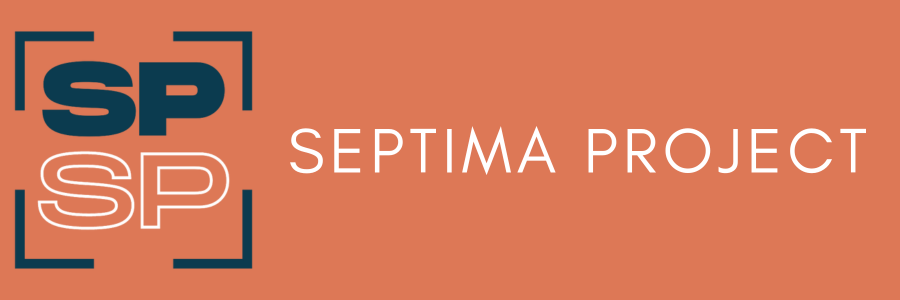ACEs, Childhood Trauma, and Disparities: How Racism Shapes Health
Sept 2023
Guest Contributor: Virginia Boyles
It’s back to school season! For us, that means it's the perfect time to revisit one of our favorite topics: how race shapes children’s lives. In our parenting workshops, we discuss how and why families need to discuss race from an early age. In this month’s post, our guest contributor Virginia Boyles shares how racism contributes to childhood trauma.
Virginia is a longtime Septima Project collaborator who has helped us with digital communications. She is a Clinical Mental Health Counseling graduate student at Trinity Washington University. She aims to help neurodivergent children and adolescents with trauma through the expressive arts. She also has a background in marketing. In her free time, you can find her doing yoga, playing with her cat, meal prepping, or reading tarot cards. Find more of her work here.
COVID-19 brought to light many health disparities in the United States. The height of the pandemic disproportionately impacted Black communities. In the summer 2020, for instance, predominantly Black counties had 3 - 6 times the infection rates of predominantly white counties.
There are numerous social, economic, and environmental factors that contribute to these health inequities—from housing and access to healthy foods to access to healthcare, and financial insecurity. One factor that has gained increasing attention for its role in shaping health outcomes is childhood trauma.
What are Adverse Childhood Experiences (ACEs)?
Adverse childhood experiences (ACEs) are traumatic events that occur before age 18 that have been linked to negative health outcomes. The term originated from a groundbreaking 1995 study from the CDC and Kaiser Permanente. The original study focused on three types of traumatic childhood events: abuse, neglect, and household dysfunction.
The study uncovered a strong link between trauma in childhood and adverse health outcomes including cancer, heart disease, diabetes, depression, substance abuse, and early death. The more ACEs a person has experienced, the more likely they will develop one of these conditions.
The connection between ACEs and later health outcomes is understood by toxic stress. Stress is a normal part of life that everyone experiences to some degree. However, prolonged, high levels of stress have a detrimental impact on the body, particularly when it is still developing. Children exposed to multiple ACEs, particularly without a buffer of support from a loving caregiver, experience a long-lasting stress response, which affects everything from their brains to their immune systems to their cardiovascular system.
ACEs are universally harmful. People from all different races, ethnic backgrounds, and socioeconomic classes experience poor outcomes as a result of adversity in childhood. That said, since the 1995 study, our understanding of ACEs has expanded to include adverse community environments, which disproportionately harm people of color and low-income communities.
Racism as an ACE
Recent research on ACEs focuses on the impact of racial discrimination in childhood. When individual/interpersonal racism is included as an ACE, Black children are more likely to have higher ACE scores compared to their white peers. Additionally, individual racism was significantly associated with the other ACEs. This does not even factor in systemic racism, which has been connected to many adverse health outcomes.
Addressing these consequences will require the collective efforts of parents, caregivers, schools, health experts, researchers, policymakers, and people committed to equity. We all have a role to play to uproot and disrupt racism. So what can we do to address racism and help prevent the most severe outcomes for BIPOC children?
Here are some ways you can act as a buffer against ACEs and support equity:
Be a safe, supportive adult. The impact of toxic stress is profound, but it significantly decreases when children have supportive caregivers to act as buffers. Whether for your own children or children in your community, being a loving source of support makes a huge difference. Validate children’s experiences and give them a safe person to turn to in times of adversity.
Invest in your community. Whether you make a financial contribution or donate your time, you can support efforts that promote racial equity and trauma-informed care. Find out what racial justice organizations are active where you live. Participate in mutual aid networks. Look for opportunities to volunteer, organize, and take action.
Start at home. It may be tempting to shelter your children from the harsh reality of racism, but the truth is, your child will be exposed to these issues regardless of their racial background. Kids need to learn how to talk about race openly from a young age. If you are struggling to have these conversations, join our mailing list to find out about our next parenting workshop.
Build multiracial relationships. When we deepen our relationships, we deepen our antiracism. Listen, connect, and learn about people’s stories, experiences, and communities. Relationships allow us to work together in solidarity toward equity.
Stay educated. Do your homework! Keep learning about how racism operates and shapes our lives. Take the time to read, watch, listen, and seek out new perspectives that decenter whiteness. Keep interrogating your own views, values, and beliefs about race.
Model antiracism. As Angela Davis famously said, “In a racist society it is not enough to be non-racist. We must be anti-racist.” Antiracism is an ongoing project that requires self-reflection and a commitment to confronting racism when we encounter it. It also means acknowledging and repairing harm.


